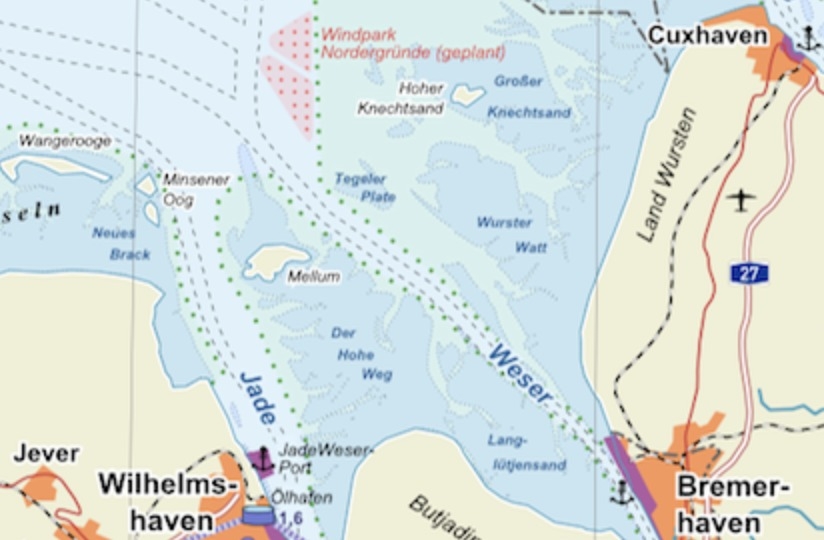Here's the 13th episode of our current Tale for Our Time, Erskine Childers' insightful story of German plots, British somnolence, and a couple of plucky Englishmen determined to change that course - The Riddle of the Sands. Thanks, as always, for your kind comments about this serialization. Paul Cathey, a Colorado member of The Mark Steyn Club, writes, very generously:
Mark, this is one of the best, if not the best, of the readings you have done. It is my favorite, so far. The various voices are spot-on--I am enjoying myself immensely on this voyage... This book is all that could be hoped for in a radio tale. By the way, 'Reise' in 'Gute Reise' is pronounce Rye-zuh, not Rice; just for future reference. Thank you, so much, for this.
Sorry about that, Paul. My rudimentary German is always very hit and miss. As I think I've mentioned, a couple of summers back in Reutlingen I fell in with some purported "teenage Syrian refugees" (actually thirty-year-old Gambian non-refugees) and did a bit of translating for them with the local townsfolk. My strike rate was about forty per cent on a good day.
In tonight's episode Carruthers considers Davies' theory of the coming war:
It was Davies's conviction, as I have said, that the whole region would in war be an ideal hunting-ground for small free-lance marauders, and I began to know he was right; for look at the three sea-roads through the sands to Hamburg, Bremen, Wilhelmshaven, and the heart of commercial Germany. They are like highways piercing a mountainous district by defiles, where a handful of desperate men can arrest an army.
Follow the parallel of a war on land. People your mountains with a daring and resourceful race, who possess an intimate knowledge of every track and bridle-path, who operate in small bands, travel light, and move rapidly. See what an immense advantage such guerillas possess over an enemy which clings to beaten tracks, moves in large bodies, slowly, and does not 'know the country'. See how they can not only inflict disasters on a foe who vastly overmatches them in strength, but can prolong a semi-passive resistance long after all decisive battles have been fought. See, too, how the strong invader can only conquer his elusive antagonists by learning their methods, studying the country, and matching them in mobility and cunning. The parallel must not be pressed too far; but that this sort of warfare will have its counterpart on the sea is a truth which cannot be questioned.
As Carruthers says, parallels must not be pressed too far, but those are lessons we have learned the hard way in the thankless unwon wars that have consumed our attention for the entirety of this no longer new century. I am thinking not just of Afghanistan and Iraq but of Molenbeek and les banlieues and other lost territory where they "know the country" and we no longer do. Members of The Mark Steyn Club can hear me read Part 13 of The Riddle of the Sands simply by clicking here and logging-in. Earlier episodes can be found here.
Here's where the Dulcibella is headed tonight - to the easternmost Frisian Island, Wangerooge, on the left-hand edge of the map:

If you've yet to hear any of our Tales for Our Time, you can do so by joining The Mark Steyn Club. For more details, see here - and don't forget our special Gift Membership. I'll be hosting Part 14 of The Riddle of the Sands right here tomorrow evening.



























